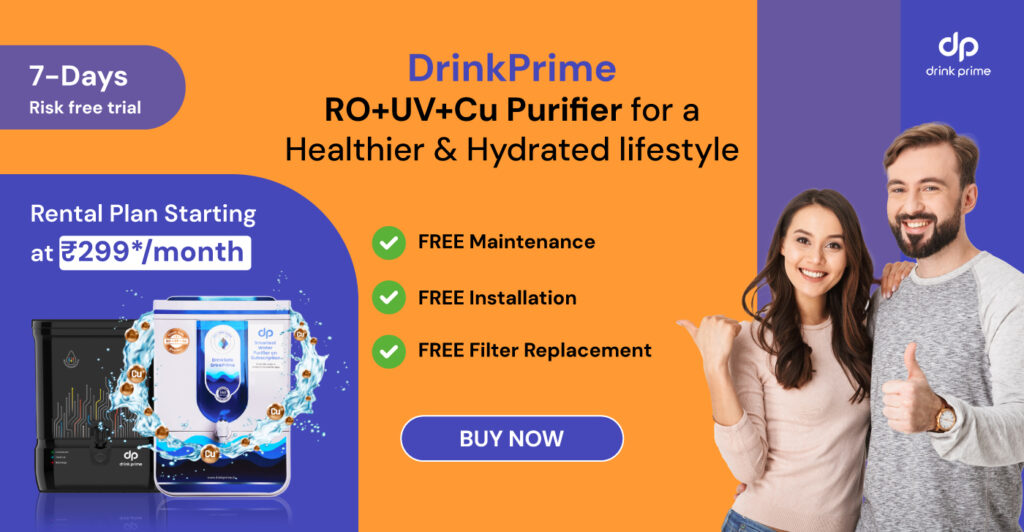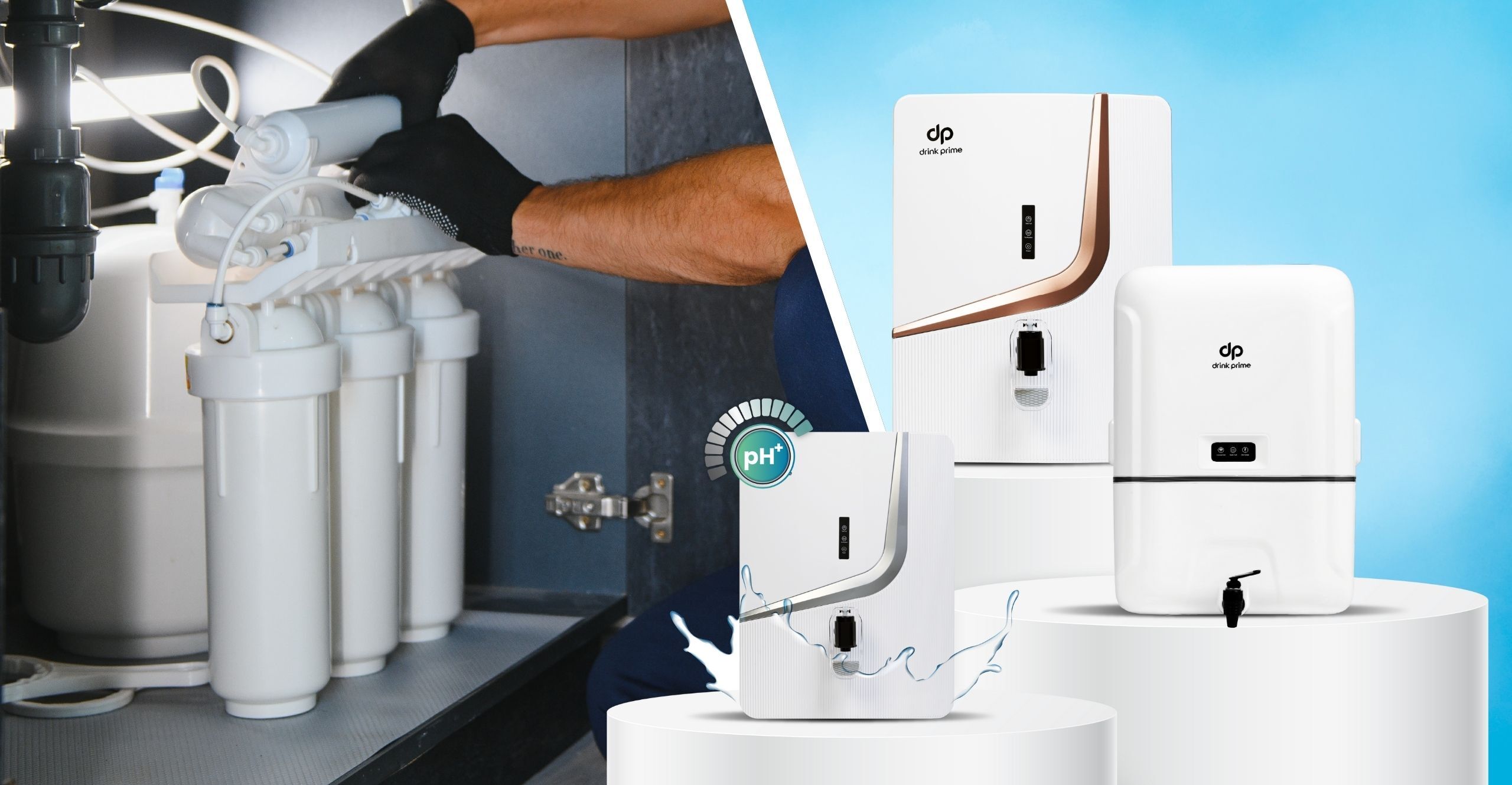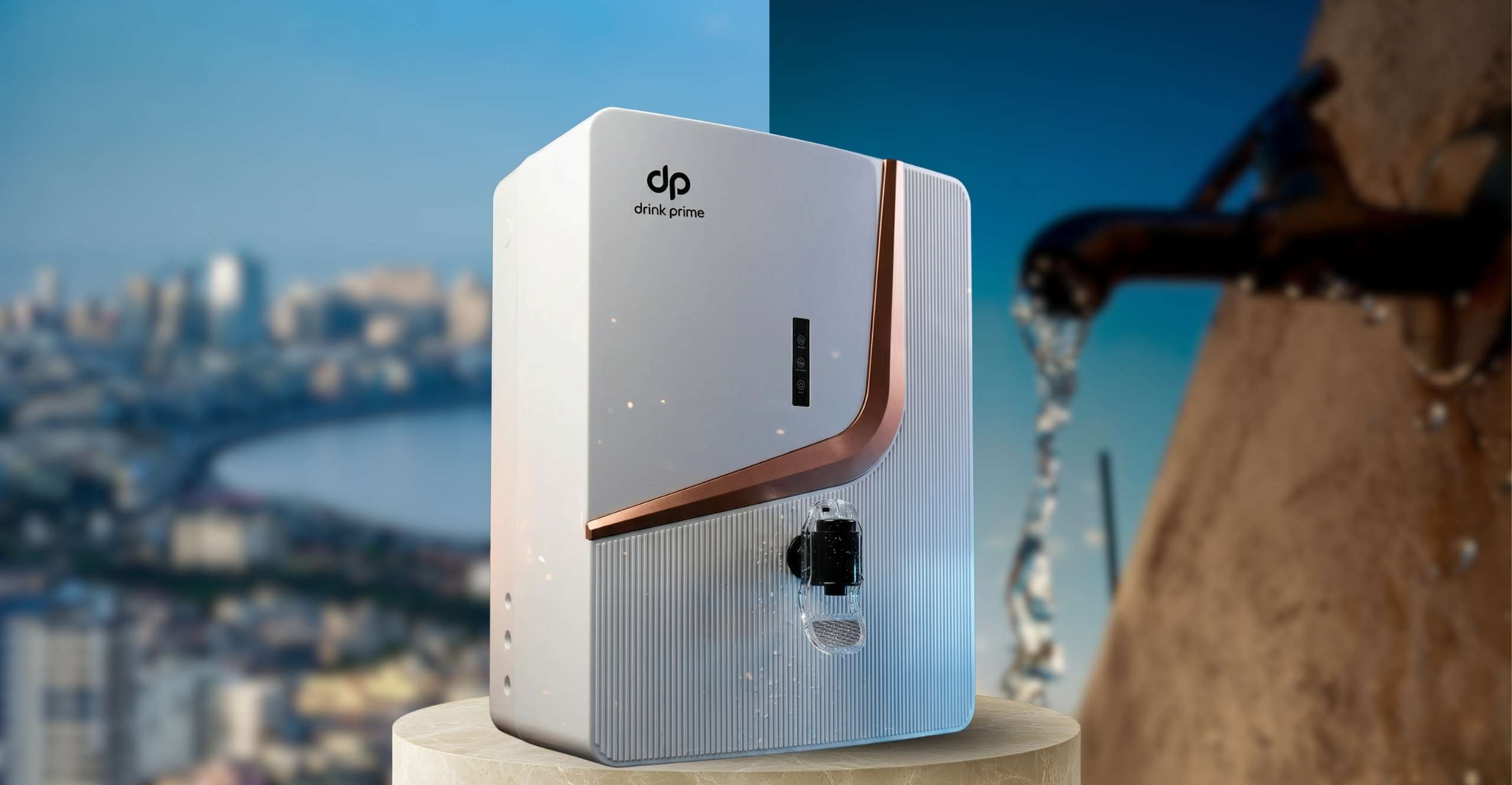The quality of drinking water is getting worse every day due to pollution from factories, farms, and improper waste disposal. These pollutants are making their way into our rivers, lakes, and groundwater. As a result, harmful chemicals, heavy metals, and germs are becoming more common in our water supply, leading to a rise in waterborne diseases.
This makes it more important than ever to choose the right water purifier. The best water purifier for home can remove these dangerous contaminants, ensuring that the water you drink is safe and clean.
With so many water purifier brands on the market, it’s crucial to pick a water purifier on rent that suits your needs.
In this blog, we will discuss the quality of drinking water and the various contaminants to be aware of. We will also provide tips on what to look for when choosing a water purifier, helping you make the best choice for your home.
What is the right quality of drinking water?
Here are some of the key aspects to consider:
- Physical quality:
Clarity: Drinking water should be clear, and free from suspended particles and sediments.
Color: One thing you have to keep in mind is that water is colorless. Any discoloration can indicate the presence of impurities or contaminants.
Odor and taste: Good quality drinking water should be free from any unpleasant odors or tastes. Plus, it should be fresh and neutral in flavor.
- Chemical quality:
pH Level: The ideal pH level for drinking water is between 6.5 and 8.5. This range ensures the water is neither too acidic nor too alkaline.
TDS (Total Dissolved Solids): Here is the recommended TDS level for the drinking water:
| TDS | Level Quality of Water |
| 0-200 | Good |
| 201-500 | Fair |
| >500 | Bad |
Hardness: Water hardness, primarily caused by calcium and magnesium, should be below 200 mg/L. Hard water can lead to scaling in pipes and may even affect skin and hair.
Heavy metals: Drinking water should be free from heavy metals like lead, arsenic, mercury, and cadmium, as these can be highly toxic even in small amounts.
Chlorine: While chlorine is used to disinfect water, its level should be below 4 mg/L to avoid health issues and unpleasant taste.
- Microbiological quality:
Bacteria: Drinking water should be free from harmful bacteria such as E. coli and coliform bacteria. The presence of these indicates contamination by fecal matter.
Viruses: Water should also be free from viruses that can cause diseases.
Protozoa and parasites: Water should be treated to remove protozoa like Giardia and Cryptosporidium, which can cause gastrointestinal illnesses.
- Radiological quality:
Radioactive contaminants: Drinking water should be free from radioactive substances such as radon, uranium, and radium, which can increase the risk of cancer and other health problems.
- Contaminants and pollutants:
Pesticides and herbicides: These should be absent or within safe limits as prescribed by health authorities.
Industrial chemicals: Compounds like PCBs (Polychlorinated Biphenyls) and solvents should be non-detectable in drinking water.
- Regulatory standards:
Compliance with guidelines: The water should meet the standards set by regulatory bodies such as the World Health Organization (WHO) and local health departments.
Choosing the right water purifier for your home involves considering several important factors to ensure you get clean and safe drinking water. Here’s a comprehensive guide:
But how do I choose the right water purifier for your home?
Check your water quality: Begin by understanding the quality of water in your area. Look out for issues like high TDS (Total Dissolved Solids), hardness, or specific contaminants.
Identify your family’s drinking water needs: Evaluate how much water your family consumes daily. Larger families or those with higher water usage may require the best water purifier for home with a larger capacity or faster filtration rate.
Consider your budget: Decide how much you are willing to invest in the best water purifier for home. Prices can vary based on technology, capacity, and brand. While budget models are available, investing in a higher-quality purifier often pays off in efficiency and durability.
Understand different purification technologies:
RO (Reverse Osmosis): Effective against dissolved salts, heavy metals, and microorganisms. This type of water purifier is the best especially if you stay in areas with high TDS levels.
UV (Ultraviolet): Destroys bacteria and viruses using ultraviolet light. Suitable for water with low TDS but potential microbial contamination.
UF (Ultrafiltration): Uses a membrane to filter out microorganisms and some suspended particles. This works without electricity and is suitable for areas with low TDS.
Activated carbon: Removes chlorine, pesticides, and odor-causing compounds. It is often used alongside other technologies for comprehensive purification.
Consider maintenance and operating costs: For the best water purifier for home factor in recurring costs such as filter replacements, electricity consumption (if applicable), and annual maintenance.
Evaluate the water purifier’s features: Look for features like storage capacity, purification rate (liters per hour), energy efficiency, and ease of use (e.g., filter replacement process).
Review customer reviews and recommendations: Read reviews from other customers to understand real-world performance and reliability. Recommendations from friends, family, or trusted sources are also valuable when it comes to choosing the best water purifier for home.
Why should you go for DrinkPrime?
One thing is clear: It’s crucial to check the quality of your water before choosing the best water purifier for home. Understanding your water’s specific issues, such as high TDS, hardness, or microbial contamination, helps you select a purifier that addresses these concerns effectively. Choosing the best ro water purifier for home that matches your water quality ensures that you and your family can access safe, clean drinking water.
And if you are looking for a good RO+UV water purifier, then DrinkPrime is the one for you! Our advanced purification technology combines RO and UV methods to ensure the comprehensive removal of contaminants, including heavy metals, bacteria, and viruses. This multi-stage filtration process guarantees that you and your family get clean, safe, and healthy drinking water 24×7!




